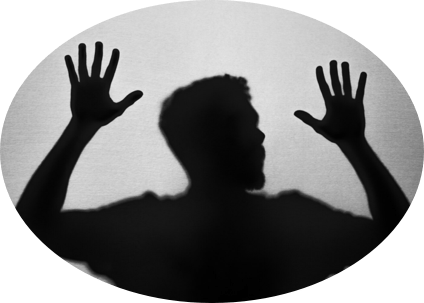Depression
Depression
Depressive symptoms can present across the lifespan, from children to older adults. Different age groups can present depressive symptoms differently and at different times, and appropriate evaluation is helpful to determine if you or a loved one is suffering with a depressive disorder. There are many different types of depressive disorders, such as those that primary affect children (Disruptive Mood Dysregulation Disorder), to those that occur across the lifespan (Major Depressive Disorder), to those that seem more ongoing (Persistent Depressive Disorder/Dysthymia), and even forms of depression that present after having a child (Peripartum Onset). The common feature of all Depressive Disorders is the presence of sad or irritable mood, with cognitive and physical changes that affect a person’s functioning. While everyone experiences sadness and irritability at times, the presence of these symptoms for at least two weeks, with a noticeable change in functioning, could indicate the presence of a Depressive Disorder, and evaluation could be helpful. In children, depression symptoms could manifest as temper outbursts, irritability, and sad mood (Disruptive Mood Dysregulation Disorder). In adolescents and adults, Major Depressive Disorder presents with primary depressed mood (for at least two weeks) and a loss of interest or pleasure in previously enjoyed activities. These symptoms are experienced nearly every day, all day, for at least two weeks, and cause a noticeable impairment in functioning. In addition, there can also be physical symptoms, such as oversleeping, fatigue, concentration difficulty, and over- or under-eating associated with the depressive period. In addition, some forms of depression, such as Dysthymia, last much longer than two weeks and can continue for years with the presence of sad mood for most days. In addition to sad mood, other possible symptoms of Dysthymia include low energy, low self-esteem, and poor concentration. Finally, some types of depression manifest after a major life event, such as feelings of depression after a loss of a loved one or after giving birth to a child. At Ally Psychiatry, we offer comprehensive treatment for all Depressive Disorders, including evaluation, medication management, therapy, and innovative treatments, such as TMS (see TMS section on the website for more information).
Depression symptoms in children and teens
Common signs and symptoms of depression in children and teenagers are like those of adults, but there can be some differences.
In younger children, symptoms of depression may include sadness, irritability, clinginess, worry, aches and pains, refusing to go to school, or being over or underweight.
In teens, symptoms may include sadness, irritability, feeling negative and worthless, anger, poor performance or poor attendance at school, feeling misunderstood and extremely sensitive, using recreational drugs or alcohol, eating or sleeping too much, self-harm, loss of interest in normal activities, and avoidance of social interaction.
Post Partum Depression
Having a baby is a wonderful miracle. This miraculous event can come with many challenges, including challenges and changes within the mother’s body and mind. Sometimes those challenges and changes are overwhelming and paralyzing. You might feel unconnected to your baby, as if you are not the baby’s mother, or you might not love or care for the baby. These feelings can be mild to severe. If you are feeling this way you are not alone, and there is help available. Postpartum depression is a serious mental illness that involves the brain and affects your behavior and physical health. Mothers can also experience anxiety disorders during or after pregnancy. Ally Psychiatry wants to support you and help you through this difficult time.
Depression symptoms in older adults
Depression is not a normal part of growing older, and it should never be taken lightly. Unfortunately, depression often goes undiagnosed and untreated in older adults, and they may feel reluctant to seek help. Symptoms of depression may be different or less obvious in older adults, such as:
- Memory difficulties or personality changes
- Physical aches or pain
- Fatigue, loss of appetite, sleep problems or loss of interest in sex — not caused by a medical condition or medication
- Often wanting to stay at home, rather than going out to socialize or doing new things
- Suicidal thinking or feelings, especially in older men
Get Help Now
There is no need to suffer alone.
Find a mental health ally near you today.
We’ll walk alongside you as you discover true hope,
clarity and peace.



